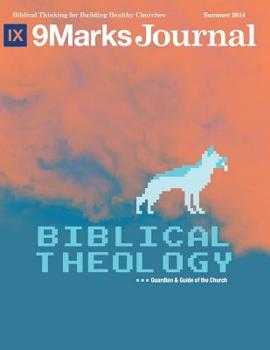Biblical Theology - 9Marks Journal: Guardian and Guide of the Church
(Part of the 9Marks Journal Series)
In The Beautiful Struggle, Ta-Nehisi Coates tells his own story of growing up as the son of a former Black Panther in West Baltimore in the 1980s and 90s. It was the era in which crack cocaine swallowed whole neighborhoods of Black men, while Black boys got shot over sneakers. Coates looked everywhere for identity-from middle school gangs, to Public Enemy, to the djembe, to waving the red, black, and green of a transcendent African mythology. He writes, "We searched our history for any way out." This, in fact, is what biblical theology provides. It is a history that gives fallen humanity a way out. Our plight includes everything faced by West Baltimore, but add to it the wrath of God. Churches, as much as ever, need to know who they are, where they come from, who their ancestors are. Are we not children of Abraham? Doesn't our family tree include Moses and David, Rahab and Ruth? Are we not all adopted heirs and coheirs with Christ? Sons of the divine king? Biblical theology is not just about reading the Bible rightly, though it begins there. It serves to guard and guide the local church. It maintains the right message, defines the task of the messenger, identifies impostors, tells us what we do when we gather, and sets the trajectory of our mission. It answers the question, Who are we, as the church in the world? Those are some of the topics this issue of the Journal will explore. The goal here is not so much to trace out the Bible's storyline, but to show how knowing that storyline locates the identity and work of the church in the grand sweep of history.
Format:Paperback
Language:English
ISBN:1542384281
ISBN13:9781542384285
Release Date:January 2017
Publisher:Createspace Independent Publishing Platform
Length:56 Pages
Weight:0.34 lbs.
Dimensions:0.1" x 8.5" x 11.0"
Customer Reviews
0 rating





